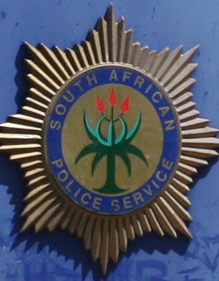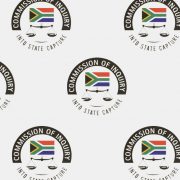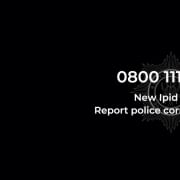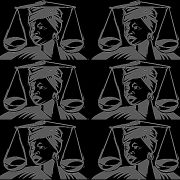|
Getting your Trinity Audio player ready...
|
 Corruption Watch and its partner organisations remained firm in their stance in parliament this week, voicing opposition to the Hawks being located within the South African Police Service (SAPS).
Corruption Watch and its partner organisations remained firm in their stance in parliament this week, voicing opposition to the Hawks being located within the South African Police Service (SAPS).
The joint presentation by Corruption Watch, the Open Society Foundation and the Legal Resource Centre was delivered during the final round of submissions on the SAPS Amendment Bill.
Contributions by anti-corruption activist Hugh Glenister and his advocate Paul Hoffman were made earlier in the week.
Corruption Watch and its partners argued that situating the Hawks anti-corruption unit in the SAPS creates a disharmonious structure that is damaging not only to the effective functioning of the unit, but also the SAPS.
“It creates unclear and overlapping lines of authority and disrupts the hierarchy within the SAPS for no good reason,” according to the submission.
The Portfolio Committee on Police, however, expressed concern that if the Hawks is not in the SAPS, it would be unable to do its work as it would not have proper policing powers.
Corruption Watch and its partners maintained that it is important the anti-corruption body is protected from political interference and influence, and that it is seen as independent of the SAPS in the eyes of the public.
Chapter 9 institution
It was suggested that the Hawks be declared a chapter 9 institution like the office of the public protector, the auditor-general or the Independent Police Investigative Directorate (IPID).
“In order for the Hawks to be sufficiently independent, three core elements such as the security of tenure, financial security and institutional independence had to be met,” said the group.
Advocate Steve Budlender, who presented on behalf of the three organisations, highlighted that the Bill gave the SAPS the power to appoint anyone to key positions, such as the Hawks head and deputy, without the approval of parliament.
The unit’s head and deputy, he suggested, should be appointed in the same way as the public protector, where a 60% supporting vote in the national assembly is required.
Corruption Watch proposed that the unit’s head be nominated, selected and appointed through a transparent process and that a special sub-committee of parliament be established to manage this.
Similarly, the removal of the Hawks head should be authorised by two-thirds majority vote in parliament.
It was also recommended that the minister of police seek parliament’s approval before formulating regulations on remuneration and the conditions of service within the unit.
The unit’s ability to carry out its mandate was also cause for concern.
Corruption Watch emphasised the need for the Hawks themselves to be able to determine the scope of its investigations.
As it stands, the Bill gives the minister the power to make policy decisions about the unit even though it has its own head.
“This goes directly to the question of independence,” said Mary-Anne Munyembate, acting head of investigatory and legal services at Corruption Watch.
“If the determination is left solely in the hands of the minister of the ministerial committee, the executive will have the power to impose certain conditions that will impede the ability of the Hawks to act independently and without fear, favour or prejudice,” she added.
Recommendations were also put forward for amendments to the section of the Bill which puts the National Commissioner in charge of the unit’s budget.
Budget allocation concerns
The three organisations stressed that the head of the anti-corruption unit should be required to submit the budget of the body directly to parliament without going through the conduit of the national department.
“If the budget is determined by the national commissioner, who is the accounting officer, it will be at the discretion of the national commissioner to allocate whatever budget he likes to the Hawks – no agreement from the head of the Hawks will be required,” said Munyembate.
“This is a serious impediment to the independence of the Hawks.”
The group also argued the importance of Hawks’ head reporting directly to parliament instead of the national commissioner.
In his presentation, Budlender said there was concern that there is no direct accountability link between the head of the unit and parliament, and that representations on the Hawk’s activities were only made by the national commissioner.
The organisation recommended that the Bill should be amended to replace the National Commissioner with the head of the DPIC.
According to Munyembate, the portfolio committee has two weeks to deliberate based on the submissions made over the past few days, after which they will have to take the Bill back to the drafters if they wish to make amendments.
“I think overall the committee was impressed, but Ms Barnard [Dianne Kohler Barnard of the Democratic Alliance] and another member tried to pin us down on what type of organisational structure the Hawks should take if it were to be removed from the SAPS,” said Munyembate.
Should the committee reject the recommendations, Corruption Watch said it could institute legal proceedings based on the same arguments made in the written and oral submissions
“In essence, as the Bill stands, it does not pass constitutional muster,” said Munyembate.
“The issues raised in our submissions need to be addressed in order to bring the Hawks in line with the requirements set out in the judgement, and in terms of various provisions in the Constitution such as section 179, 206 and 207.”

Corruption Watch and its partner organisations remained firm in their stance in parliament this week, voicing opposition to the Hawks being located within the South African Police Service (SAPS).







